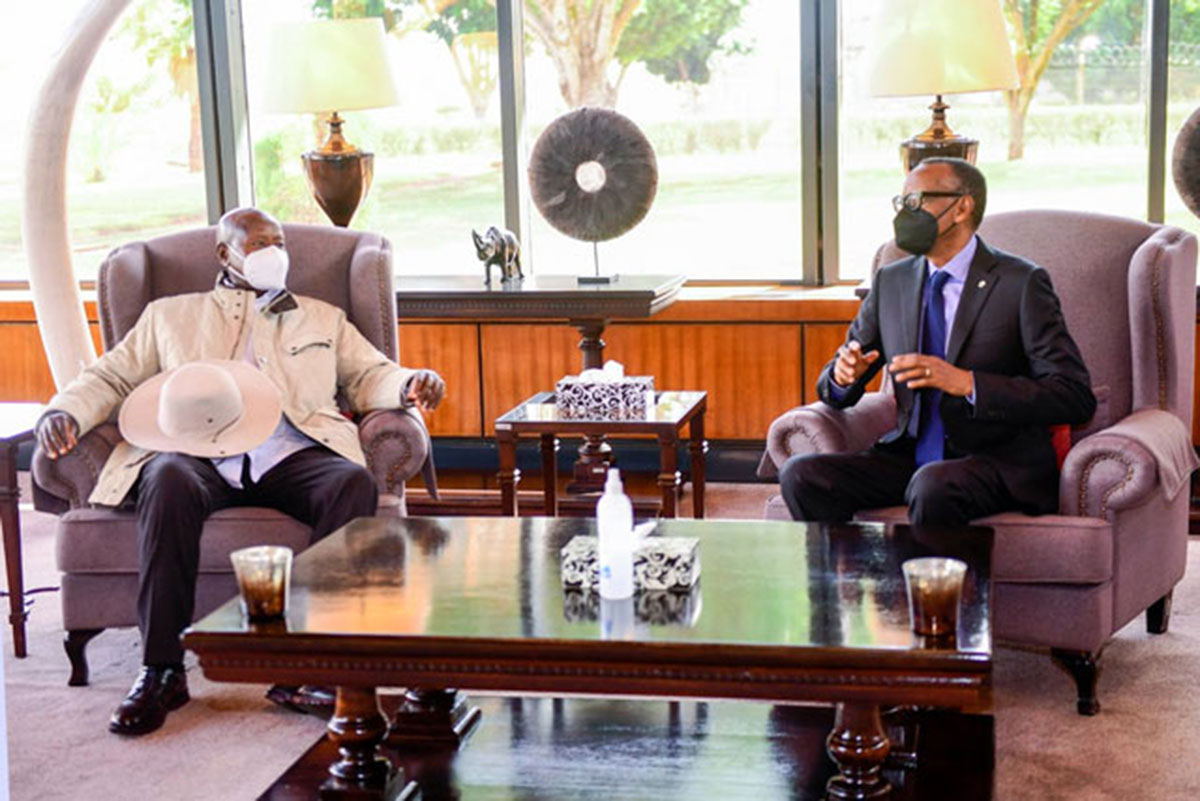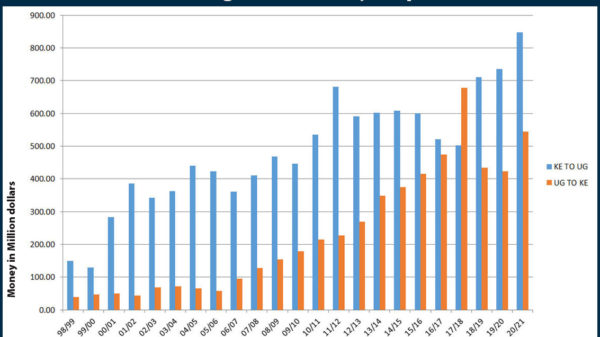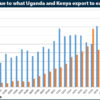The World Bank says Uganda hasn’t done enough over the past decade to boost regional trade beyond the East African Community and it should do more, but it is doubtful whether the country has the statecraft to pull it off.
Ugandans are still unable to trade freely with their neighbours in Rwanda, a year after Rwanda was supposed to have agreed to end a three-year border blockade it had instituted against Uganda.
When Rwanda’s foreign affairs ministry announced on January 31, 2022 the reopening, General Muhoozi Kainerugaba, who participated in negotiating an end to the border blockade, sent out a message extolling his father, President Yoweri Museveni, and Rwanda’s President Paul Kagame for allowing the completion of a process that would allow Ugandans and Rwandans to freely move, trade and interact “as the almighty intended it.”
However, as the case of Jack Turyahikayo alias Rwakigizi shows, Ugandans and Rwandans have not been freely moving, trading or interacting.
Turyahikayo, a father of eleven, was buried three weeks ago at his home in Karere village, Rukiga District, six days after Rwanda security followed him into Mpororo village in Uganda, shot him and took his body with them, only to later bring it back for burial.
Abel Rubahika, the chairperson Mpororo Village, says Turyahikayo used to trade in kitchenware such as plates and saucepans, and it is possible the deceased was shot dead for trying to smuggle these items into Uganda or vice versa.
“Rwanda doesn’t allow anyone to bring anything from their side. From our side (Uganda) we are now allowed to take onions, and food; things that rot easily,” Rubahika says.

Ordinary Meeting of the EAC Council of Ministers – session of Senior Officials.
Until the border closure in February 2019, Rwanda was an important market for both formal and informal businesses in Uganda. Information from Bank of Uganda (BoU) shows that in 2018, the last complete year before the border closure, Uganda’s formal export revenues to Rwanda stood at $198 million, while imports were at $18.1 million. BoU data also shows that Uganda’s revenues from informal exports to Rwanda stood at $50 million.
Rubahika says for border communities like those in Mpororo, informal trade with neighbouring communities in Rwanda used to be an important livelihood source.
The World Bank in its latest Uganda economic update also highlights the importance of cross-border trade in countries with limited purchasing power.
“Like many least developing countries, Uganda suffers from a small domestic market and distortions, which lead to misallocation of resources. As a result, international trade will play a critical role in solving some of the current challenges faced by the Ugandan economy,” reads an excerpt from the 20th edition of the World Bank’s Uganda Economic update.
The World Bank adds that Uganda can achieve increased international trade by paying more attention to African countries beyond the East African Community (EAC).
Sashana Whyte, lead author of this latest World Bank’s Economic Update, says Uganda has failed over the last decade to implement policies that would maximize trade beyond the East African Community.
“The government has made only limited progress since 2013, when the first Uganda Economic Update encouraged the country to think strategically and work to boost trade beyond the East African Community,” she says.
The Update shows that East African Community partner states, which now include Rwanda, Burundi, Kenya, Tanzania, South Sudan and the Democratic Republic of Congo (DRC), provide the most important market for goods and services from Uganda.
Over the last two decades Uganda appears to have abandoned trade with many African countries to focus on the EAC.
Between 1997 and 2012, the World Bank shows that non-EAC African states provided at least a quarter of the market for Uganda’s exports on the continent. But as Uganda’s trade with the EAC partner states increased, the proportion of exports to other African countries dwindled.
Since non-tariff barriers and security challenges such as the burning of cargo trucks in South Sudan and the Rwanda border closure make EAC partner states unreliable, the World Bank recommends that Uganda invests in benefiting from the African Continental Free Trade Area (AfCFTA).
When fully negotiated, the AfCFTA will cover services, investment and digital trade, which will in turn provide Uganda with a market beyond the EAC partner states.
As recently as 2021, Kenya banned Ugandan maize over alleged high levels of aflatoxin. While William Ruto Kenya’s new president has said bans and non-tariff barriers will now be lifted, some experts say these promises can only remain in place for as long as Uganda is doing the necessary diplomatic work.
What went wrong?
Jack Wamai Wamanga, a former career diplomat and Member of Parliament, says to maintain good trade relations with Kenya, Uganda would require competent diplomats.
In 2013, just after President Uhuru Kenyatta took over, it appeared Uganda had finally cracked the issues of tariff and non-tariff barriers from Kenya. Under what popularly came to be known as the “Coalition of the Willing”, Uganda (under Museveni), Kenya (under Kenyatta) and Rwanda (under Paul Kagame) were supposed to lead the journey towards turning the EAC into a political federation as Tanzania (under Jakaya Kikwete) and Burundi seemed to drag their feet on the matter.
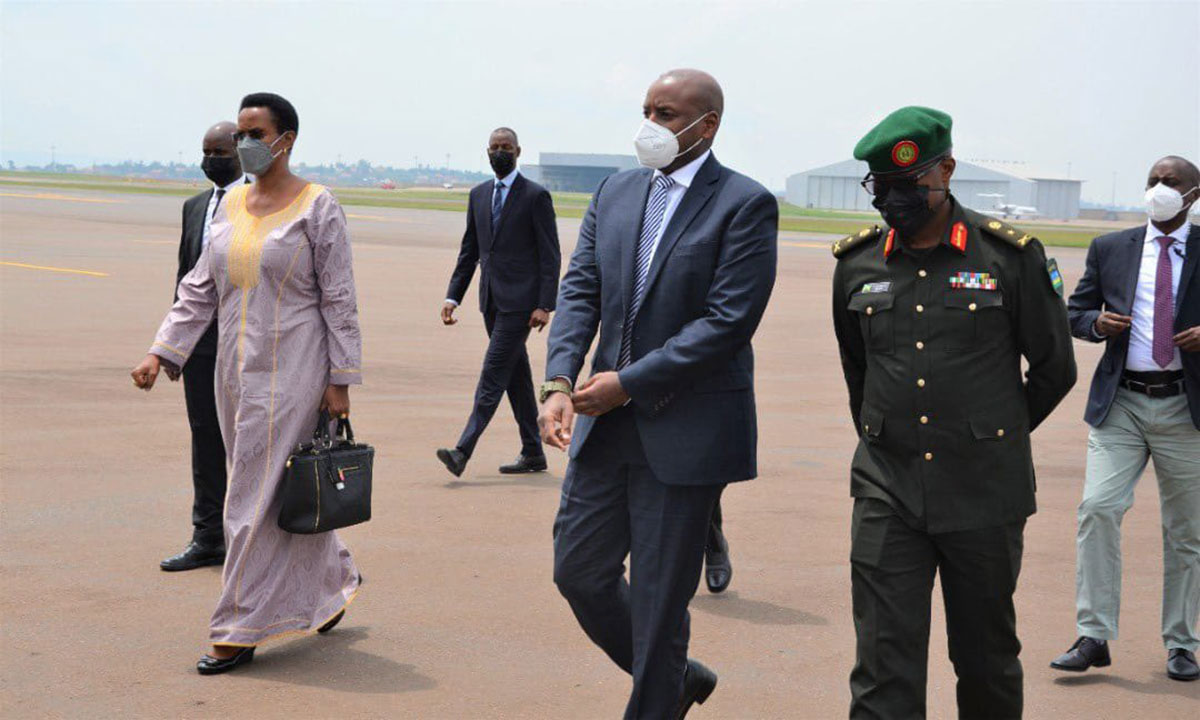
Gen. Muhoozi Kainerugaba on his second special trip to Rwanda a week after the Uganda-Rwanda border was opened.

But by the end of Kenyatta’s presidency, Uganda’s milk, maize, eggs, sugar and sugarcane were all encountering non-tariff barriers intended to block access to the Kenya market. Uganda, which was supposed to lead the political federation agenda under the “Coalition of the Willing”, did not make any headway. The envisaged political federation dream has since been downgraded to confederations so that each partner state can maintain significant political autonomy than would be the case if the EAC became one state.
According to former MP Wamanga, part of Uganda’s problem is that failed former politicians lead many of its diplomatic missions. He says such diplomats are not properly schooled in achieving Uganda’s strategic goals. He adds that President Museveni has generally put technocrats in a difficult position, as they are in most cases unable to retaliate or seek accountability whenever other countries mistreat Uganda and Ugandans.
Officials in Uganda’s Ministry of Trade highlight cases of Tanzania and Kenya charging exorbitant fees whenever Ugandan trucks use their roads. While Rwanda, for example, retaliated against Tanzania over the high road usage charges, Uganda did nothing.
As a result, Rwanda’s rates were revised downwards, while Ugandans in the freight business are now forced to register their cargo trucks in either Kenya or Tanzania to avoid the charges.
Similar sentiments of President Museveni’s interpretation of Pan-Africanism hobbling foreign policy are highlighted in how Uganda handled the Rwanda border closure and how it has resulted in the murder of Ugandans under unclear circumstances.
Mbabazi Kakwere, the Rukiga District Chairman, says Turyahikayo is one of seven Ugandans murdered by Rwanda security in unclear circumstances since the border closure. Kakwere insists that Turyahikayo was not smuggling, as he was shot when he had nothing on him.
“Where are the goods he was smuggling?” Kakwere questions.
Rubahika, the village chairperson, adds that it is possible Turyahikayo was killed for daring to use an unofficial crossing point, even if he had nothing on him.
According to Rubahika, official crossing points such as the one at Katuna are located a long distance from their part of Rukiga District. Many residents who have relatives and friends across the border points like to use unofficial crossing points, because going to official crossing points requires them to spend more on transport and time.
Kakwere says that to stop the killing of innocent Ugandans that dare to use unofficial border points, Rukiga District has been conducting meetings with counterparts in Rwanda. Among other things, Rukiga is attempting to get Rwanda to compensate Turyahikayo’s family for what the district leaders believe is wrongful killing.
Kakwere, however, adds that the problem for Rukiga is that there is no precedent for accountability or compensation for the other six Ugandans killed for alleged smuggling during the border blockade.
Lives not prioritised
When Gen. Muhoozi and Adonia Ayebare, Uganda’s Ambassador to the United Nations who acted as President Museveni’s special rapporteur in the Rwanda talks, negotiated reopening of the border, the issue of villagers in Kigezi region murdered for crossing into Rwanda didn’t seem to have been discussed.
Kakwere says Uganda’s silence whenever its citizens are murdered could have bred impunity on the part of Rwanda’s security.
Rwanda, on the other hand, brought most of the things they had been raising to the table when discussing reopening of the border.
In addition to the main issue, which was that Kampala was a refuge for Rwandan dissidents, President Kagame’s government also demanded for the release of her citizens that had been incarcerated in Ugandan prisons for alleged espionage.
It is also believed that the firing of Maj. Gen. Abel Kandiho from his position as boss of the Chieftaincy of Military Intelligence, which he had used to hunt down suspected Rwandan operatives in Uganda and generally counter real or supposed Rwandan interests in Uganda, was down to fulfilling Rwanda’s demands during the negotiations.
To overcome obstacles that may exist when negotiating at bilateral level, like was the case with Rwanda, the World Bank recommends that Uganda participates more in regional forums and working closely with institutions such as the EAC secretariat.
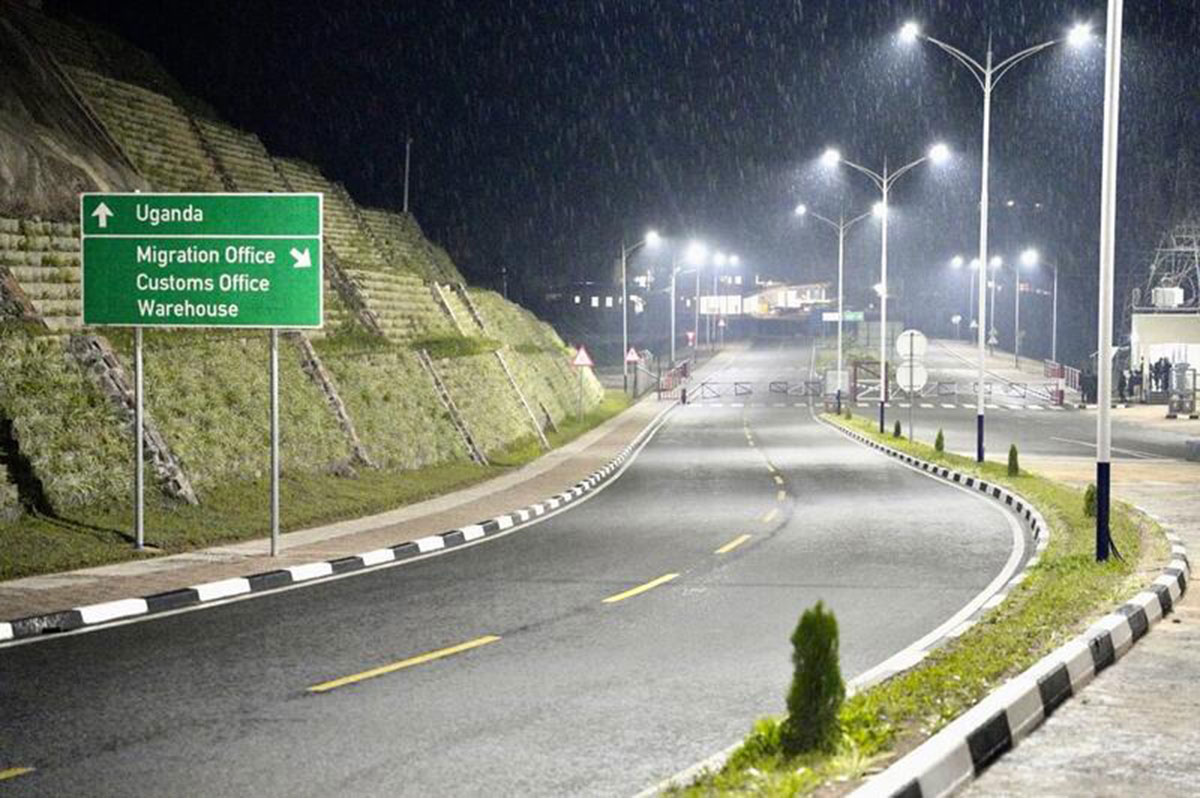
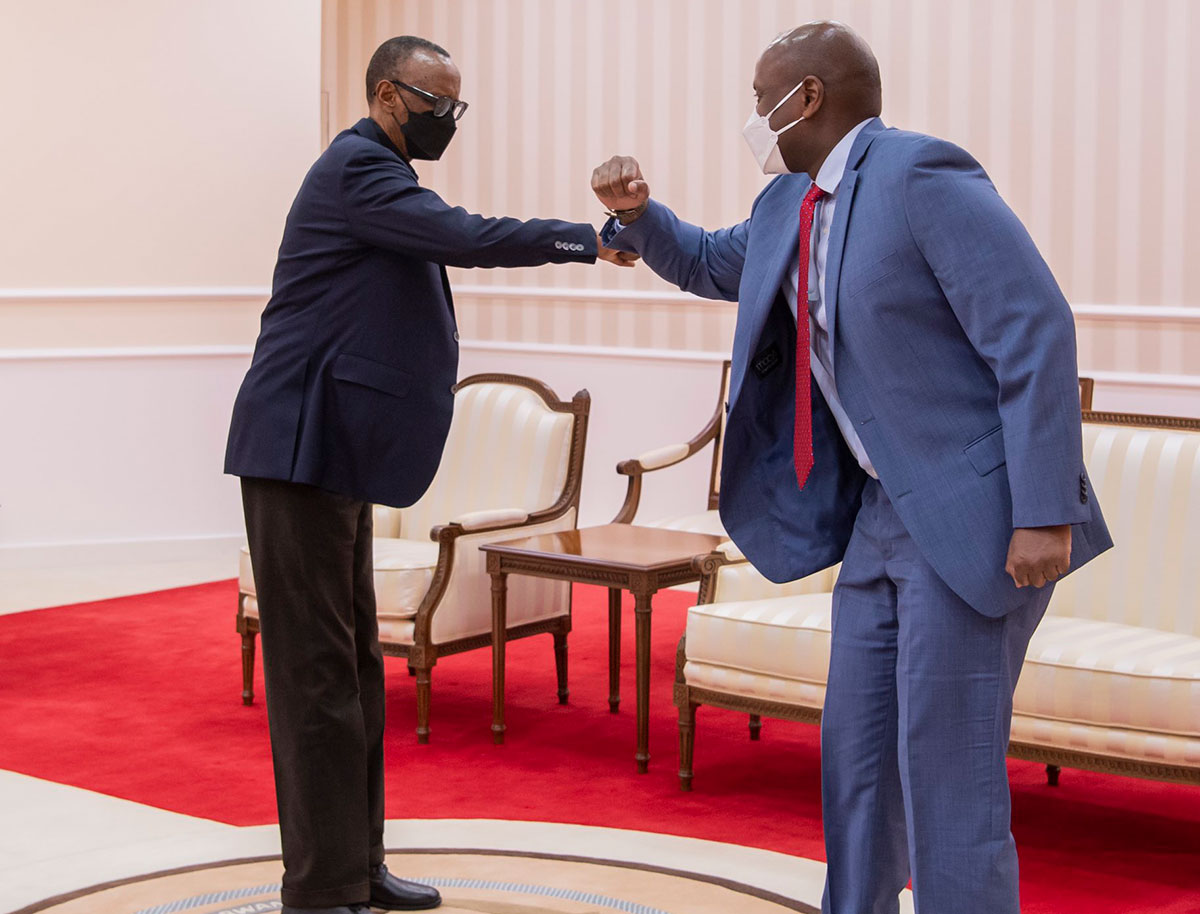
However, Rebecca Kadaga, Uganda’s minister of EAC affairs, says without forming a confederation, there are integration levels that are impossible for the EAC to reach.
“Confederation is very important to enable us do some central planning and organisation of industries,” Kadaga says.
As Speaker of the tenth Parliament, who also hails from a region that routinely suffers a sugarcane glut because of Kenya’s hostility towards Uganda’s sugar, Kadaga used to suggest Uganda had in country the tools to solve non-tariff barriers introduced by EAC neighbours.
Now as EAC Affairs Minister, she says it is impossible to do away with non-tariff barriers that complicate travel and trade, as each country will prioritise political and national interest ahead of regional integration.
Her example of politics failing regional integration include one instance in 2021 when she failed to make it to Mwanza in Tanzania, for the EAC annual medium and small-scale trader’s exhibition
“I wanted to fly there but when we calculated, we discovered it was going to take 23 hours from Entebbe to Mwanza. Mwanza is just across the lake (Victoria) here,” she says.
Both Mwanza and Entebbe are located on the shores of Lake Victoria, meaning a comfortable ferry or planes able to freely fly in the EAC would have dramatically reduced the travel time.
She also adds that realigning programmes such as Buy Uganda, Build Uganda or Buy Kenya, Build Kenya to suite the regional integrational agenda is an impossible task and confederation is the only way out.
Wamanga, on the other hand, insists that proactive diplomats who regularly educate and illustrate mutual benefit to their respective host governments would help open in the EAC and the Africa region, but that they are sorely missing at the moment.

